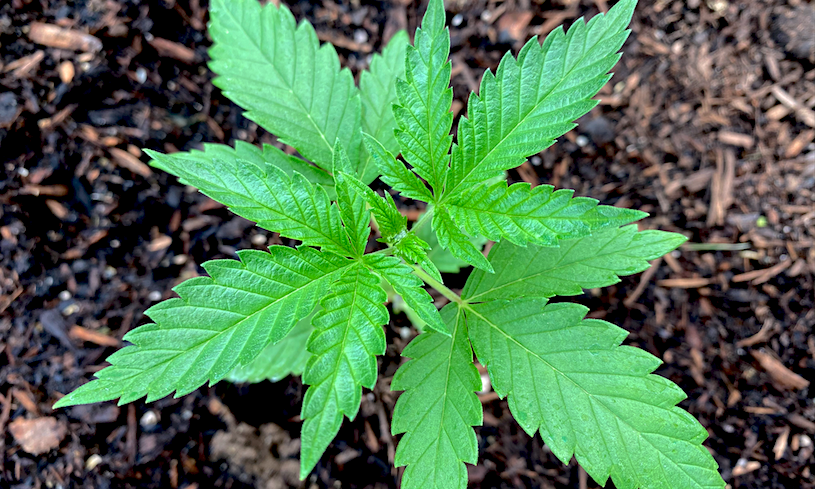The New Hampshire House of Representatives isn’t giving up on marijuana legalization just yet, with members taking a new approach to reform after the Senate defeated two cannabis bills last week.
While the Senate voted against separate proposals to legalize marijuana home cultivation and create a state-run cannabis market, the House wants to give the chamber “another chance” to enact the policy change. To do that, members adopted an amendment to an unrelated Senate-passed bill to include the non-commercial legalization proposal.
Advocates are skeptical that the maneuver will work, but they support the strategy of continuing to put additional pressure on the Senate to hold members accountable.
On Wednesday, the House adopted the amendment to attach the text of cannabis bill HB 629 to SB 299, legislation that deals with criminal justice reform that already cleared the Senate. The body then approved the bill as amended on a voice vote.
“Frankly, if you’re like me and you’re tired of hearing about cannabis bills, let’s send this one more time and be done with it,” Rep. Terry Roy (R) said on the floor on Wednesday.
“This term, all of us on both sides have put a lot of work into bills and where we convinced the majority of 400 people [in the House] to pass a bill only to have it die for no apparent reason [in the Senate],” he said. “So we’re going to send it again to give them another chance. This bill passed by two to one majority in this House.”
Rep. Carol McGuire (R) is the sponsor of HB 629, which moved through the House and also advanced through the Senate Judiciary Committee with an ought to pass recommendation last month before being rejected on the floor.
The Senate now has three options with respect to the amended bill with the legalization language: concur, non-concur and request a conference committee or non-concur and not request a conference committee. Given the recent vote on the standalone cannabis bills, however, advocates expect the chamber to go with the last option and defeat the reform again.
“The 15 senators who opposed HB 629 should be expected to explain again and again why they think adults should continue to be punished for cannabis possession in the ‘Live Free or Die’ state,” Matt Simon, director of public and government relations for Prime Alternative Treatment Centers of NH, told Marijuana Moment.
Here’s what HB 629, now attached to SB 299, would accomplish:
Adults 21 and older could possess up to three-fourths of an ounce of cannabis for personal use.
They could further grow up to six plants—only three of which could be mature—in a secure location out of sight from other properties.
Cannabis gifting of up to three-fourths of an ounces of marijuana or up to three immature plants would be permitted between adults 21 and older.
Processing marijuana into cannabis-infused products, including edibles and tinctures, would be permitted as well.
Public consumption would be prohibited and carry a civil penalty of $100.
Adults who violate cultivation rules by, for example, growing plants visible to other properties would face a maximum $750 fine.
The bill as drafted is nearly identical to an earlier version that also passed the House under Democratic control in 2020 but which was defeated in the Senate at the committee stage.
—
Marijuana Moment is already tracking more than 1,000 cannabis, psychedelics and drug policy bills in state legislatures and Congress this year. Patreon supporters pledging at least $25/month get access to our interactive maps, charts and hearing calendar so they don’t miss any developments.![]()
Learn more about our marijuana bill tracker and become a supporter on Patreon to get access.
—
As it stands, possessing up to three-fourths of an ounce of marijuana is decriminalized in New Hampshire, punishable by a $100 fine for a first offense and escalating for subsequent offenses. Home cultivation remains prohibited, however, even for medical cannabis patients.
Meanwhile, with respect to the state-run marijuana bill that the Senate also recently defeated, advocates and stakeholders have raised concerns about the idea of the proposed model, which would be unlike any other cannabis market that’s currently in place in other states.
But notably, the legislation earned some praise from Gov. Chris Sununu (R), who despite being a historically outspoken opponent of adult-use legalization, said recently that reform “could be inevitable” in the state and that HB 1598 is “the right bill and the right structure.”
“So if you are ever going to do it, do that bill,” he said.
The governor added in a separate recent interview that he’s “not fully committal” in his longstanding opposition to legalization.
Nearly three in four New Hampshire voters support legalizing marijuana, according to a recent poll. And bipartisan majorities also say they’re in favor of conducting cannabis sales through a state-run model.
Reform supporters have spent years working with the GOP-controlled legislature to craft thoughtful legislation to end cannabis criminalization, though diverging viewpoints and resistance from Republican leadership has consistently derailed the reform.
Meanwhile, three lawmakers—Reps. Joshua Adjutant (D), Renny Cushing (D) and Andrew Prout (R)—each filed separate bills to put marijuana legalization on the state’s 2022 ballot. Cushing, who served as House Democratic leader, passed away recently after a battle with cancer.
The House defeated Prout’s proposed constitutional amendment and voted to table the two other measures.
In order to have advanced any of the proposed constitutional amendments, it would have taken a supermajority 60 percent vote in both chambers. If any of the constitutional amendments were enacted, it would have enabled legislators to avoid a likely veto on statutory reform legislation from anti-legalization Sununu.
If legislators had ultimately moved to place a constitutional amendment to legalize cannabis on the ballot, 67 percent of voters would then have needed to vote in favor for it to be enacted. Recent polling indicates that residents are ready for the reform, with three in four New Hampshirites favoring legalization.
The governor’s opposition to adult-use legalization has been a constant source of contention. However, advocates were glad that he at least signed a bill in August adding opioid use disorder as a qualifying condition for the state’s medical cannabis program and also allows out-of-state patients to access dispensaries.
In 2019, lawmakers sent a medical cannabis home grow bill to Sununu’s desk, but he vetoed it.
The state House separately tabled a bill in March that would have decriminalized possession of psilocybin mushrooms.
Medical Disclaimer:
The information provided in these blog posts is intended for general informational and educational purposes only. It is not a substitute for professional medical advice, diagnosis, or treatment. Always seek the advice of your physician or other qualified healthcare provider with any questions you may have regarding a medical condition. The use of any information provided in these blog posts is solely at your own risk. The authors and the website do not recommend or endorse any specific products, treatments, or procedures mentioned. Reliance on any information in these blog posts is solely at your own discretion.







